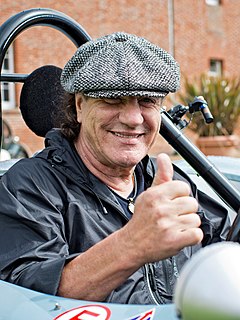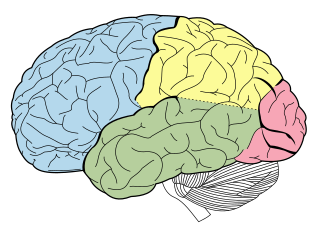A Quote by Jeanne Marie Laskas
In the early 16th century the Italian physician Jacopo Berengario da Carpi, a pioneer in the science of anatomy, came up with the idea that perhaps 'brain commotion' was caused by the thrust of the soft structure of the brain against the solid case of the skull.
Related Quotes
Autism is a neurological disorder. It's not caused by bad parenting. It's caused by, you know, abnormal development in the brain. The emotional circuits in the brain are abnormal. And there also are differences in the white matter, which is the brain's computer cables that hook up the different brain departments.
We live in the Age of the Higher Brain, the cerebral cortex that has grown enormously over the last few millennia, overshadowing the ancient, instinctive lower brain. The cortex is often called the new brain, yet the old brain held sway in humans for millions of years, as it does today in most living things. The old brain can't conjure up ideas or read. But it does possess the power to feel and, above all, to be. It was the old brain that caused our forebears to sense the closeness of a mysterious presence everywhere in Nature.
The brain sits snugly inside the skull, but it's not a completely flush fit - there is still a layer of fluid between bone and soft tissue that serves as a natural shock absorber. Some shocks, however, can't be absorbed, and when the head gets clobbered too hard, the brain can twist or torque or rattle around inside its skeletal casing.
The only thing that mattered to me with 'Xen' was setting things up against each other in an uncomfortable way. If there's a really soft piece of music, and then you're hit by a painful explosive sound, your brain does this funny somersault trying to make sense of why this happened. And at that very moment, your brain is malleable.
One can truly say that the irresistible progress of natural science since the time of Galileo has made its first halt before the study of the higher parts of the brain, the organ of the most complicated relations of the animal to the external world. And it seems, and not without reason, that now is the really critical moment for natural science; for the brain, in its highest complexity-the human brain-which created and creates natural science, itself becomes the object of this science.
One of the things cognitive science teaches us is that when people define their very identity by a worldview, or a narrative, or a mode of thought, they are unlikely to change-for the simple reason that it is physically part of their brain, and so many other aspects of their brain structure would also have to change; that change is highly unlikely.
There was [ in New York] - some of it was this perception of the Midwest that I realized in this multicultural city that - and I don't think it's as true as it was - but everyone was kind of like, what, are you Jewish? Are you Italian? What are you? You know, are you black? Are you da-da-da? Are you Puerto Rican? And so I ended up - my ethnic identity was Midwestern, was white bread. And so it informed a lot of my stand-up.
Everyone uses the brain at every moment, but we use it unconsciously. We let it run in the background without realizing the power we have to reshape the brain. When you begin to exercise your power, the everyday brain, which we call the baseline brain, starts to move in the direction of super brain.
The pace at which science has progressed has been too fast for human behaviour to adapt to it. As I said we are still apes. A part of our brain is still a paleo-brain and many of the reactions come from our fight or flight instinct. As long as this part of the brain can take over control the rational part of the brain (we will face these problems).
But if the brain is not like a computer, then what is it like? What kind of model can we form in regard to its functioning? I believe there's only one answer to that question, and perhaps it will disturb you: there is no model of the brain, nor will there ever be. That's because the brain, as the constructor of all models, transcends all models. The brain's uniqueness stems from the fact that nowhere in the known universe is there anything even remotely resembling it.




































